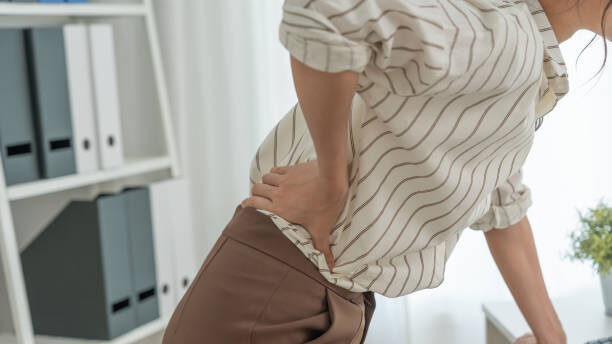When people are involved in an automobile accident, they often don’t realize the severity of their injuries right away. Shock and adrenaline can mask pain at first, and the all-over body aches that follow can make it difficult to pinpoint the location of an injury. Slipped spinal discs are a particularly difficult injury to recognize immediately following an accident.
Spinal discs are tough, rubbery rings surrounding a gelatinous interior, which nestle between the vertebrae to protect them. Trauma from a car accident can rip the tough outer ring, allowing the inner portion to protrude.
If you’ve been in a car accident and are experienced any of these symptoms, you may be suffering from a slipped disc.

Numbness and Tingling in Limbs
One of the earliest signs of a slipped disc is numbness and tingling that extends into the arms and hands. It may show up hours after an accident. This symptom is likely caused by a slipped disc pressing on your spinal nerves.
Muscle Weakness
Slipped discs frequently affect nerves, which can then go on to affect other parts of the body. Many muscles rely on nerves to function properly. If you find yourself stumbling a lot or have difficulty holding or lifting items, a slipped disc may be the culprit.
Leg Pain and Loss of Function
Nerve pain commonly radiates to certain parts of the body that are surprisingly far away from the injury site. A slipped disc in the lumbar spine can cause pain that is dull or sharp in nature to radiate down the leg. In some cases, you can also lose sensation in your leg, which can inhibit leg function.
Difficulty Sleeping Due to Pain
The pain of a herniated disc can feel especially intense at night. This may be as a result of your body position, which can cause the slipped disc to press directly on your nerves. In the short-term, you can work on finding comfortable sleeping positions to relieve the pain, but it’s important to find a way to fully treat your delayed injury.
Pain When Sneezing, Coughing, or Bending Over
Slipped discs need rest to heal. Any kind of movement can cause the pain to flare back up. If you experience moments of searing pain when you do something like cough, sneeze, or bend down, that’s a classic sign of a slipped disc.
Even if you don’t feel it immediately, an auto injury can be painful and debilitating, causing ongoing repercussions. But you don’t have to be in pain forever. With the right treatment and some time, a slipped disc can heal up, and you can live your best pain-free life once more.

